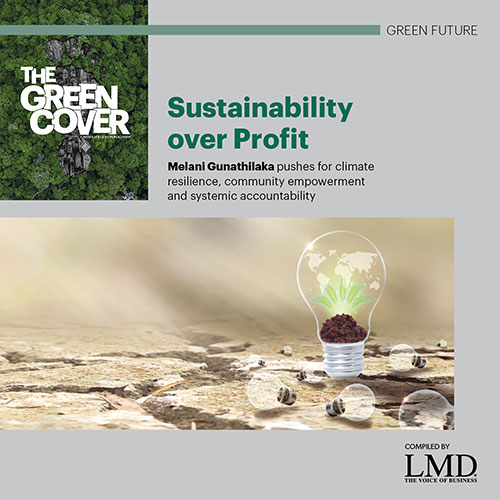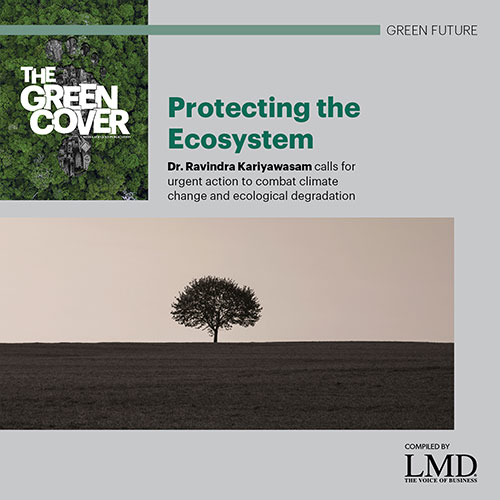ECONOMIC UPLIFTMENT
Sustainable Apparel Union
Naadia Buhary offers insights into the indispensable participation of SMEs in the local apparel industry
“As the fashion industry evolves rapidly in an unpredictable post-pandemic world and the metaverse takes shape, digitalisation and sustainability are dominating consumer priorities presenting a myriad challenges along its global supply chain. Consumers are demanding greater transparency: Where did the materials come from? How are products manufactured? What impacts along its lifecycle?” says Sustainability and Environmental, Social and Governance (ESG) Specialist Naadia Buhary.
“With the national economy in crisis and the global economy’s recovery post COVID-19 exacerbated by the war in Ukraine, the role of the SME sector in the transition to a more stable and sustainable economy has never been more important,” Buhary notes.
She continues: “The context is challenging especially for SMEs with entry barriers such as the startup capital expenditure for machinery, facilities, raw materials, and processes for compliance and customer onboarding, which can take many months. With smaller cash buffers, this is then compounded by the forex crisis, and other constraints such as developing supply chain capabilities and R&D.”
On becoming ‘future-ready,’ she elaborates: “Understanding consumer perceptions and evolving trends will be critical to success. Markets such as the European Union are already devising roadmaps for an economy linked to sustainable products and services, providing SMEs with valuable incentives for innovation, particularly in circular textiles and apparel, virtual fashion and product traceability.”
Buhary believes that SMEs have a distinct advantage as they challenge the status quo, disrupt the industry and embrace change by carving out a niche market for themselves. SMEs will need to leverage opportunities and risks, and focus on value creation through innovation, developing sustainable models of resource consumption and enabling inclusive social transformation, on multiple scales and levels.
“Success stories such as Allbirds Inc., that built a unique B2C model focussing on footwear made from renewable and recycled material, are ideal for the Sri Lankan apparel SME sector,” she maintains.
Furthermore, she points out that enabling long-term development requires multi-stakeholder collaboration and partnership. Industry agencies and the government will need to play a greater role in facilitating access to finance and digital technology, skill development, canvassing for customers, and linking into the global value chain.
“If the SME sector can develop a reputation as a champion of a resilient and sustainable economy, it will provide them with an avenue to address the challenge of business growth and expansion with a distinctive competitive edge to outperform market expectations,” she concludes.
“ SMEs have a distinct advantage as they challenge the status quo, disrupt the industry and embrace change by carving out a niche market for themselves







